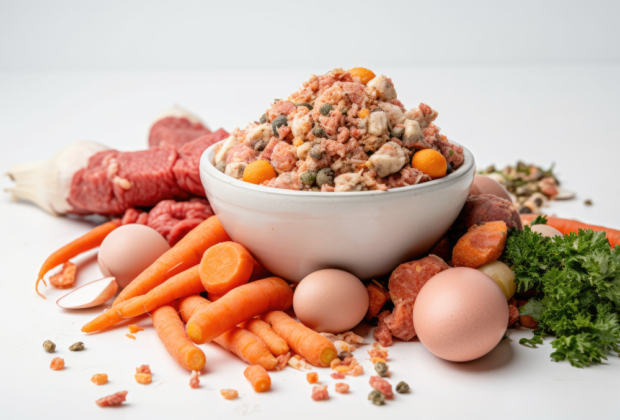Just as with humans, dogs can benefit from nutrient-dense superfoods in their diet. These natural ingredients pack a powerful punch of vitamins, minerals, antioxidants, and other beneficial compounds. Adding dog-friendly superfoods can boost your pup's immune system, promote healthy skin, and coat, and even help prevent certain diseases.
Proteins With a Purpose
Protein is the cornerstone of any good dog food, but there are certain protein sources that offer added nutritional perks.
Fatty Fish
Fatty fish, like salmon, mackerel and sardines, are rich in omega-3 fatty acids. These healthy fats promote brain health, reduce inflammation, and keep your dog's skin and coat lustrous. According to the experts at over Nextrition, many of the best dog food for sensitive stomach options feature fish as the main protein.
Eggs
Eggs are a complete protein loaded with vitamins and minerals like vitamin D, B12, iron and selenium. The yolks also provide choline for brain and liver support.
Leafy Greens Galore
While dogs are omnivores, leafy green veggies still deserve a place on their plate. Superfoods like spinach, kale, and broccoli offer:
- Fiber for healthy digestion.
- Vitamins A, C and K.
- Calcium and iron.
- Cancer-fighting antioxidants.
Go For the Orange
Carrots, sweet potatoes, and cantaloupe are orange fruits and veggies that are packed with beta-carotene, an antioxidant that converts to vitamin A in a dog's body. Vitamin A supports eye health, immunity, and cellular growth.
The Power of Purple
Foods that are red, blue, or purple get their vibrant hues from powerful antioxidants called anthocyanins. Blueberries and blackberries are easy ways to sneak this superfood into your pup's diet. They may help to prevent cancer and cognitive aging.
Prebiotic Pros
Prebiotics like chicory root and dried beet pulp function as food for the "good" bacteria living in your dog's gut. A healthy gut microbiome aids in digestion, vitamin production, and immune function. Nowadays, many vets recommend prebiotics for dogs with sensitive stomachs.
Turmeric's Anti-Inflammatory Benefits
This bright yellow spice possesses anti-inflammatory properties and has been utilized in Indian medicine for centuries. The active compound curcumin may help relieve joint pain and muscle soreness in active or aging dogs.
Coconut's Multiple Benefits
Coconut products contain healthy medium-chain triglycerides that are easily digestible and less likely to cause weight gain or digestive sensitivities. Coconut oil, flour and meat also provide lauric acid, a fat with antimicrobial and antiviral properties.
Don't Forget About Grains
While grain-free diets are popular, certain whole grains can absolutely be part of a healthy and nutritious dog food. Oats, brown rice, quinoa, and barley provide fiber, B vitamins, and other minerals. Look for these nutrient-rich ancient grains rather than cheap fillers like wheat or corn. Whole grains can be a great complementary source of carbohydrates alongside superfoods like veggies and fruits.
Balanced is Best
Superfoods can absolutely boost your dog's diet, but it is important not to go overboard. Too much of a good thing can cause stomach upset or throw off your pup's nutritional balance. Moderation and variety are key.
Conclusion
The best dog food for a sensitive stomach provides complete and balanced nutrition, with superfoods incorporated as a complement to quality proteins, fats, and other essential nutrients. Consult your vet for the appropriate "superfood" amount for your dog's size and breed.
When shopping for healthy kibble or canned formulas, look for:
- A meat protein source first.
- Plenty of fruits and veggies.
- Few preservatives or artificial additives.
- No vague "meat meal" ingredients.
With the right diet full of natural superfoods and nutrients, your four-legged friend will look, feel, and act their very best at any age.








